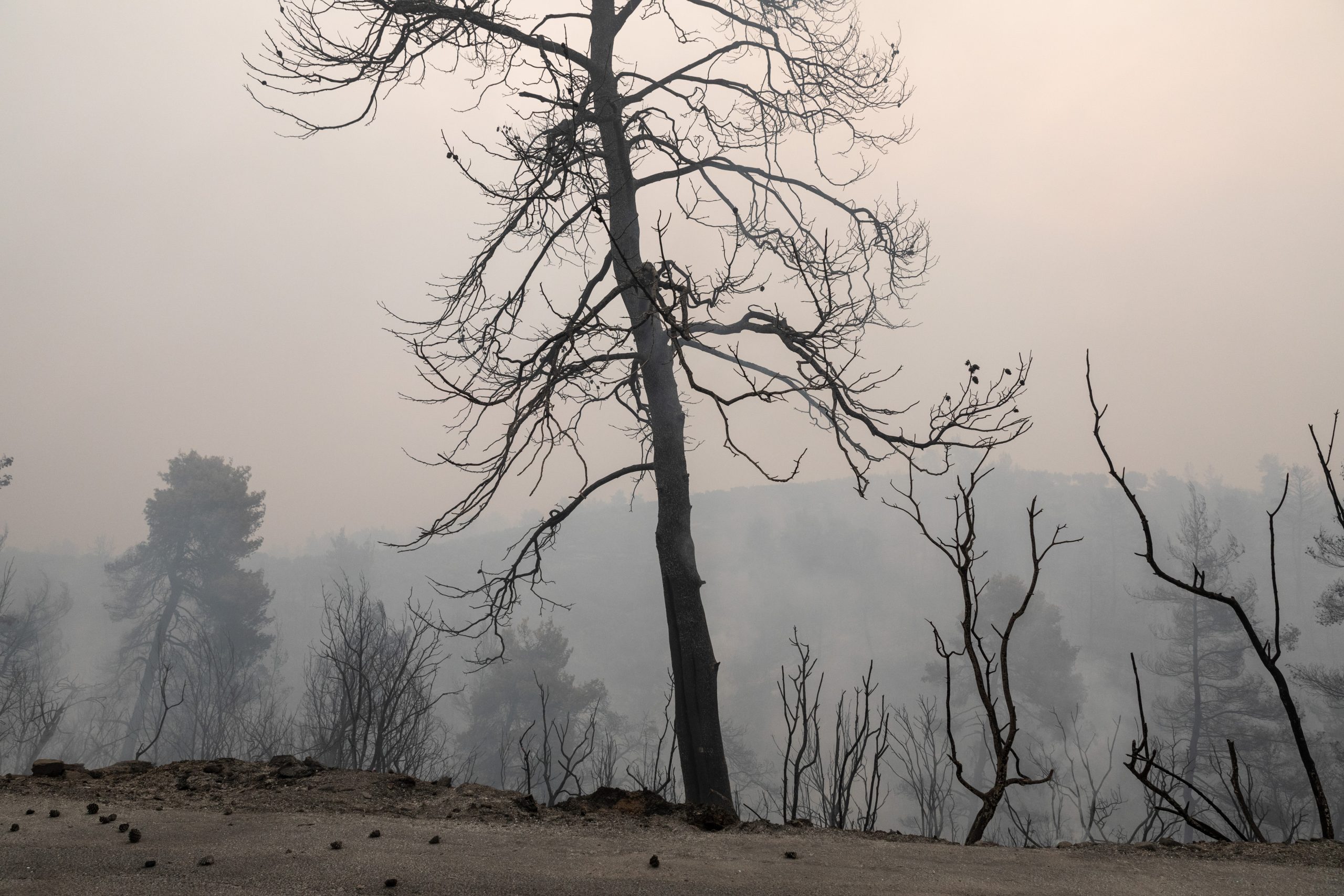
One of the three main development pillars of the Northern Evia Reconstruction Program is the rational utilization of the forest as a source of income for the residents. Therefore, a perspective of particular interest is the sustainable management of the woody biomass of the forest, in a way that ensures its protection and sustainability, while yielding economic and social benefits for the local community.
With this criterion, The Centre of Planning and Economic Research-KEPE, wanting to contribute substantially to the Reconstruction Program of Northern Evia, compiled the study entitled “Possibilities and prospects of energy utilization of woody biomass residues in Northern Evia and possible benefits for the local economy” (KEPE, 2023).
The main purpose of the study is to investigate the possible benefits for the economy of Northern Evia that may arise from the energy utilization, primarily, of woody biomass residues from proper forest management and, additionally, of agricultural biomass residues from the tree crops of the area.
Among other things, it is pointed out that the substitution of conventional fuels by RES for energy production is an essential factor in reducing environmental pollution, while at the same time it has other important advantages, such as limiting the country’s energy dependence, increasing domestic added value and jobs etc.
The utilization of biomass, as a basic form of domestic renewable energy source, can contribute to the achievement of the goals that have been set, but also compared to other forms of RES, it presents significant advantages at the local level, both in terms of socio-economic and environmental dimension.
Specifically for North Evia, it is pointed out that, in addition to the undisputed value of the forest, North Evia is characterized by significant agricultural activity that can be a source of dry residual biomass, which can be used additionally as raw material in combination with forest biomass . In this way, not only can the available quantities be increased, but the material can be better managed, both geographically and throughout the year, helping to alleviate the limitations that exist regarding seasonality and transport and storage costs. of biomass, while at the same time securing additional income for the producers.
Also, as an interesting approach, the creation of energy cooperatives is proposed with the main advantage of the direct participation in the investment plan of those involved in the process, such as the producers themselves, the loggers, etc. The activities of such cooperatives can cover all stages of a corresponding value chain, from the production and concentration of biomass, to the production and marketing of secondary products, such as pellets (pellets) and/or the production and sale of energy . As a consequence, economies of scale are achieved and biomass acquisition costs are minimized, while at the same time significant benefits are created for local communities.
Latest News

DM Dendias: We talk With Turkey But We Always Bring Up Their Unacceptable Positions
Second and last day of closely watched conference, entitled 'Metapolitefsi 1974-2024: 50 Years of Greek Foreign Policy', also included appearances by PM Mitsotakis, Ex-PM Tsipras and PASOK leader Nikos Androulakis, among others

Rhodes Airport Tops Fraport Greece’s Regional Airports in 2024 Performance
According to Fraport's data, more than 35 million passengers (specifically 35.2 million) were handled by Fraport-managed airports during the 11 months.

European Central Bank Cuts Interest Rates by 25 Basis Points
It is the fourth cut of interest rates by Europe’s central bank, a move expected by the markets and financial analysts leading to the rate settling at 3%.

Airbnb: New Measures Add €600 in Extra Costs for Property Owners
Property managers face an immediate administrative fine of 5,000 euros if access to the inspected property is denied or any of the specified requirements are not met.

Economist: Greece Included in the Best Performing Economies in 2024
Meanwhile, Northern European countries disappoint, with sluggish performances from the United Kingdom and Germany.

EasyJet Expands Its Routes from Athens
The airline’s two new routes will be to London Luton and Alicante and they will commence in summer 2025.

Capital Link Forum Highlights Greece’s Economic Resurgence; Honors BoG Gov Stournaras
Capital Link Hellenic Leadership Award recipient, Bank of Greece Gov. Yannis Stournaras, an ex-FinMin, was lauded for his pivotal role during Greece’s economic recovery

Tourist Spending in Greece Up by 14%, Visa Card Analysis Shows
Greece’s capital Athens emerged as the most popular destination, recording a 17% increase in transactions with Visa cards, surpassing even the cosmopolitan island of Mykonos.

Inflation in Greece Unchanged at 2.4% in Nov. 2024
The general consumer price index (CPI) posted a 0.4% decrease in November compared to the previous month

2024 Christmas Holidays: Extended Shop Hours Schedule
The 2024 Christmas Holidays extended shop hours schedule commences on Thursday, December 12 and runs until the end of the year.

![Φυσικό αέριο: Δυναμικό come back του LNG στην Ελλάδα [γραφήματα]](https://www.ot.gr/wp-content/uploads/2023/01/OT_naturalgas-90x90.jpeg)












![Fraport: Πάνω από 35 εκατ. επιβάτες στα αεροδρόμια το 11μηνο – Πτώση στη Μύκονο [πίνακας]](https://www.ot.gr/wp-content/uploads/2022/06/fraport-90x90.jpg)


















![Φυσικό αέριο: Δυναμικό come back του LNG στην Ελλάδα [γραφήματα]](https://www.ot.gr/wp-content/uploads/2023/01/OT_naturalgas-600x474.jpeg)








 Αριθμός Πιστοποίησης Μ.Η.Τ.232433
Αριθμός Πιστοποίησης Μ.Η.Τ.232433